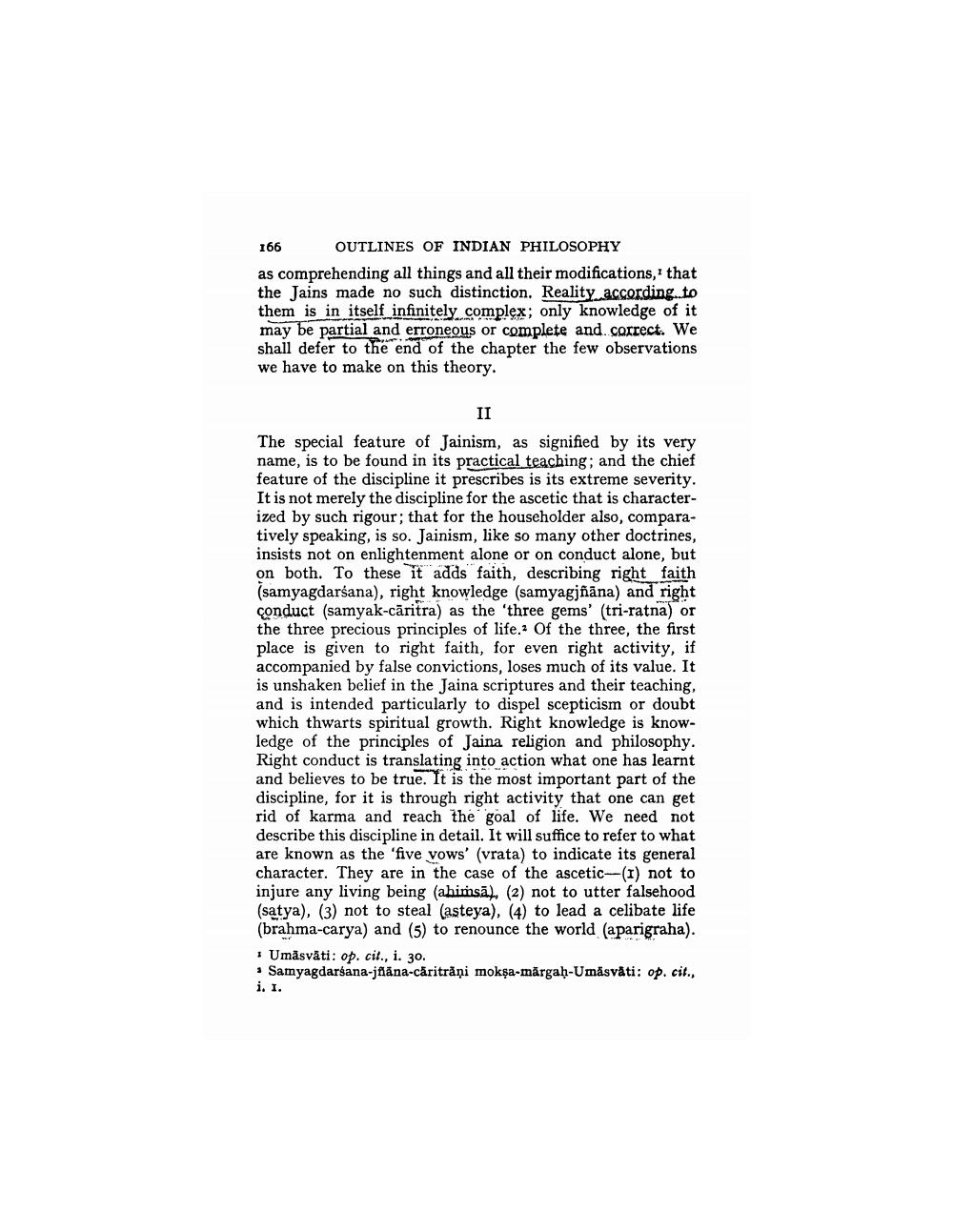________________
166
OUTLINES OF INDIAN PHILOSOPHY
as comprehending all things and all their modifications,' that the Jains made no such distinction. Reality according to them is in itself infinitely complex; only knowledge of it may be partial and erroneous or complete and correct. We shall defer to the end of the chapter the few observations we have to make on this theory.
II
The special feature of Jainism, as signified by its very name, is to be found in its practical teaching; and the chief feature of the discipline it prescribes is its extreme severity. It is not merely the discipline for the ascetic that is characterized by such rigour; that for the householder also, comparatively speaking, is so. Jainism, like so many other doctrines, insists not on enlightenment alone or on conduct alone, but on both. To these it adds faith, describing right faith (samyagdarśana), right knowledge (samyagjñāna) and right conduct (samyak-caritra) as the 'three gems' (tri-ratna) or the three precious principles of life. Of the three, the first place is given to right faith, for even right activity, if accompanied by false convictions, loses much of its value. It is unshaken belief in the Jaina scriptures and their teaching, and is intended particularly to dispel scepticism or doubt which thwarts spiritual growth. Right knowledge is knowledge of the principles of Jaina religion and philosophy. Right conduct is translating into action what one has learnt and believes to be true. It is the most important part of the discipline, for it is through right activity that one can get rid of karma and reach the goal of life. We need not describe this discipline in detail. It will suffice to refer to what are known as the 'five vows' (vrata) to indicate its general character. They are in the case of the ascetic-(1) not to injure any living being (ahimsa), (2) not to utter falsehood (satya), (3) not to steal (asteya), (4) to lead a celibate life (brahma-carya) and (5) to renounce the world (aparigraha).
Umäsvati: op. cit., i. 30.
⚫ Samyagdarśana-jñāna-căritrāņi mokṣa-margaḥ-Umäsvāti: op. cit., i. I.




